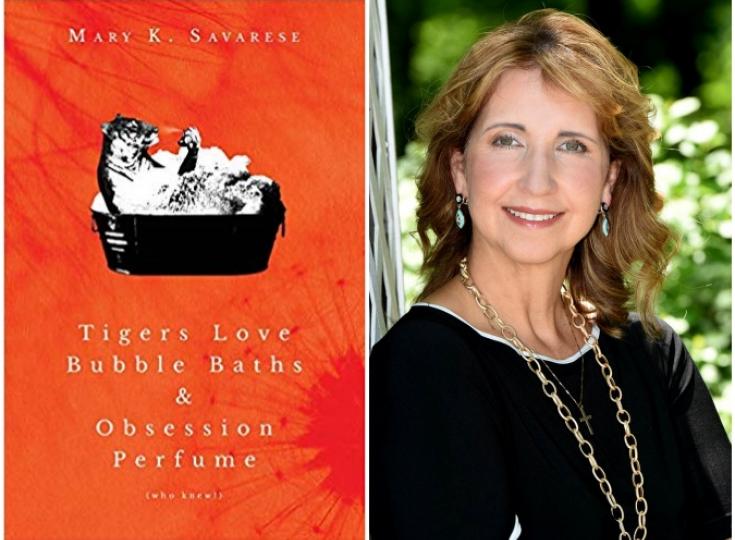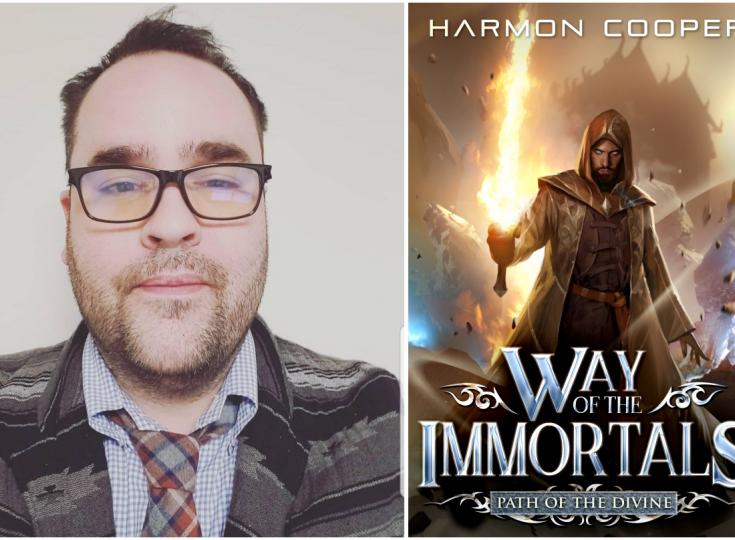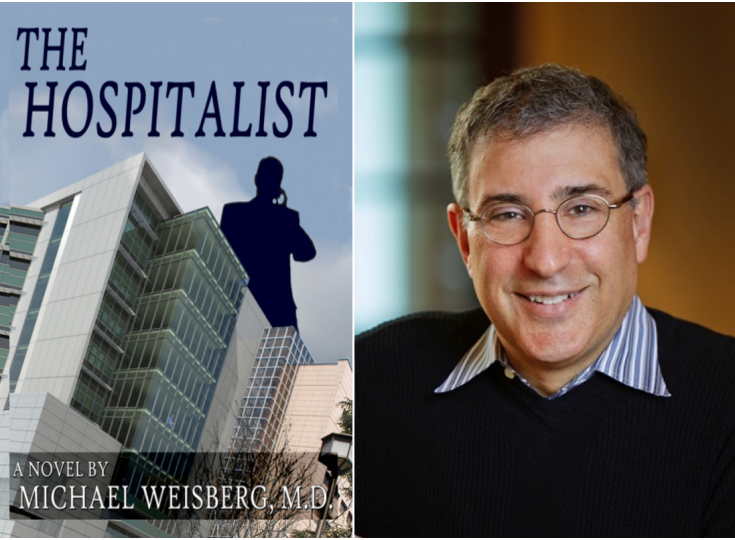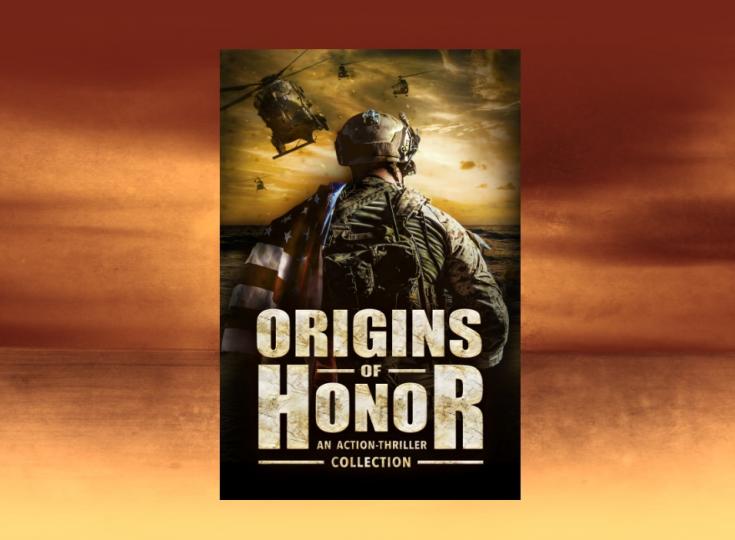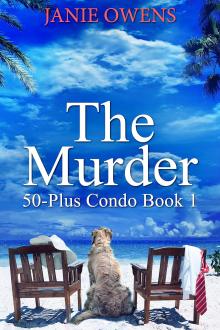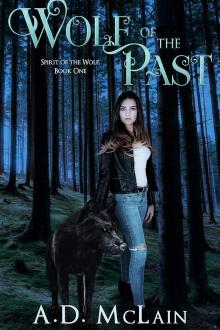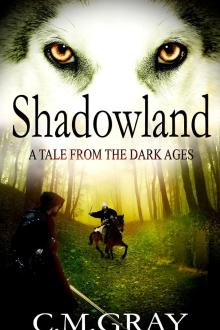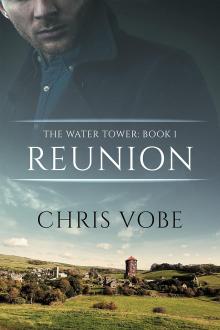Chris Tullbane - Post-Apocalyptic, Superhero, Coming-of-Age Ghost Story
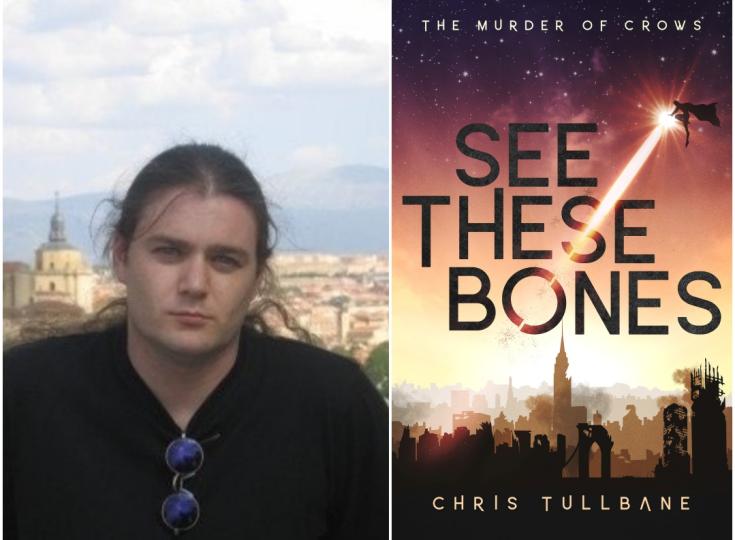
Chris Tullbane began as a gleam in someone’s eye, but birth and childhood were quick to follow. He’s been fortunate enough to live in Spain, Germany, and all over the United States of America, and is busy planning a tour of the distilleries of Scotland. He is the author of two series; The Murder of Crows and The Many Travails of John Smith, as well as a collection of novelettes and stand-alone novels, Stories from a Post-Break World, which are set in the world of The Murder of Crows. As our Author of the Day, he tells us about the first book in his The Murder of Crows series, See These Bones.
Please give us a short introduction to what See These Bones is about.
See These Bones is the first book in a completed post-apocalyptic 'capepunk' trilogy called The Murder of Crows. Set in a version of the world that 'broke' in the 1980s with the mass introduction of superpowers, it centers on one of the last bastions of democracy in the continental United States, where gifted individuals called Powers occupy the traditional comic book role of superheroes in a very non-traditional setting. The central character, Damian Banach, is a teenage orphan who was born with the one superpower nobody wants, necromancy. Every necromancer before him has inevitably been driven mad by their power, and Damian's desperate hope is that he can learn to control his abilities and avoid that fate. His struggle will unearth a conspiracy that began long before he was born and leave the setting of the post-Break world forever changed.
What inspired you to write this story? Was there anything in particular that made you want to tackle this?
In a lot of ways, See These Bones came from my response to and reaction against the power fantasies I was seeing in my genre at the time. The central question that prompted the entire series was: what if the one thing that makes someone special is also the thing most likely to destroy them? I found the idea of a character wrestling with their fate compelling and wanted to chart the possibly divergent lines of their growth as a person and the path that their superpower was taking them.
Why did you decide to make your protagonist a necromancer?
Damian being a necromancer sets up many of the conflicts of the series. Necromancers (known as Crows in the world) are a rare type of Power, but every single one has eventually gone crazy, and the more powerful of them did a lot of damage along the way. Damian knows this better than anyone, given that his father was also a Crow and, in his madness, killed his own wife and Damian's mother. That is the fate Damian is desperately trying to change. As it says in the book's blurb: "Some superheroes want to save the world. Damian is just hoping to save himself."
At the same time, his being a necromancer understandably creates issues with many of those around him, particularly his fellow students at the Academy for Superheroes, where Damian is seen as both damaged goods and a ticking time bomb.
You have lived all over the world. How has this influenced your writing?
My father served in the US Army, and as a result, I was fortunate enough to grow up in Spain and Germany, as well as a handful of different cities throughout the USA. I think one of the primary benefits of seeing and experiencing other cultures is that it instills an appreciation and understanding of other perspectives, of how world views, behaviors, and even dreams can be shaped by one's history and environment. To me, that's vital for creating distinctive and varied characters... people who aren't just bad or good or whatever basic archetype they fit best into but instead a complex mixture of many different facets. A lot of writing, in my opinion, is about creating three-dimensional characters, defining the setting and situation they find themselves in, and then setting them free to bounce off of each other and create conflict and harmony organically.
Besides writing, what other secret skills do you have?
In addition to fiction, I write poetry. For a long time, I considered myself a poet first, and an author second, although that has flipped in recent years as my books occupy the majority of my time and effort. I was also a software engineer for twenty years, and while I'm slowly forgetting everything I ever knew, coding remains a skillset I possess. Lastly, I am passionate about whisky, leading to an ever-expanding collection of drams that have taken over our home bar. I don't know if that counts as a skill, but it's a hell of a hobby!
What drew you to Dystopian fantasy as a genre?
What I find most interesting about dystopian settings is how often they actually center on hope, on people who hold strong to ideals or convictions even though it might cost them everything. When the world is grim and bleak, someone's struggle against that environment, or against an inevitable fate, is that much more noteworthy. It goes back to the old line of 'it's easy to be good when everything goes someone's way.' In a dystopian world, a lot of the internal stressors we deal with in reality are writ large and become active, external threats, such that standing against them, even in vain, becomes an act of almost nobility. That dynamic is extremely powerful, and something I love about the genre.
Tell us more about Damian. What makes him tick?
Damian begins his journey as a broken individual, a teenager who, at five, saw his father murder his mother and be imprisoned for it, and was then consigned to the foster care system where his own power made him a pariah. As a result, he has a lot of anger and trauma to deal with, in conjunction with a lack of positive role models to emulate when it comes to his interactions with others. At the same time, he has a strong protective instinct for the less fortunate and is someone who will go to any lengths to defend those few people he cares about. As a handful of his teachers come to realize, he has the makings of a hero buried somewhere deep beneath his rough exterior, if he could only get out of his own way.
At his core, he is someone who never, ever stops; if one road closes, he will find a different path that keeps him moving forward. That's a strength but also a flaw that gets him into a lot of trouble. The decisions he makes are not always the best available, but instead simply the best that he can see given his own flawed perspective.
One of the two central throughlines of the series' narrative arc is Damian learning to be a person again, growing from the bitter, angry teen we initially meet into someone with real friends, a found family, and dreams beyond simple survival.
What did you have the most fun with when writing this story?
I leaned really heavily into Damian's voice for the story, with all the edgy, often ridiculous teenage angst that entailed. Because the entire series is in first person and we're stuck in Damian's head, it was a lot of fun to play with his status as an unreliable narrator and even his own warped self-image. Often the reader understands Damian better than he does himself, and I think that makes for a compelling story where we can see his growth from book to book even if he remains largely unaware.
In which way is this also a coming-of-age story?
As much as superpowers are the backdrop, the inciting element, and the vehicle that keeps the primary plot moving ahead, this is ultimately a series about a teenager growing up, overcoming or at least accepting the trauma of his childhood and life, and finding a way to become an adult who not only finds their place in the world but actively sacrifices to make that world a better place. Much of the series takes place at a college for those with superpowers (as well as the mundane students who are majoring in related supporting fields), and there are a lot of collegiate aspects included, from young love to rivalries to exposure to new views and perspectives, all set against the reality of a profession that, for all of its celebrity aspects, has an almost obscene mortality rate.
Readers say the book caused a rollercoaster ride of emotions. Was this intentional?
Absolutely. Keeping readers guessing, particularly in a book and series like this, is a big part of keeping them entertained. Nothing comes easily for Damian, and the twists and turns that continually threaten to throw him off track are there to ensure the reader stays invested as well. Life can sometimes be predictable, but a good book never should be.
When starting on a new book, what do you do?
My starting point for any book or series is always voice. Most of my books are in first person, and to me, the narrator's voice is the key to the character themselves; it conveys aspects of who they are and what they believe in on levels where simple exposition might struggle.
Once I know a character's voice, I have a good idea who that character is in general, and then it's all about identifying the central conflict that both makes them tick and drives the narrative itself.
Do you have any interesting writing habits? What is an average writing day like for you?
I am not a fast writer, in part because I develop very loose outlines, where only the beginning, ending, and a few key moments are pre-defined. A big reason for that is that I like having the freedom to improvise as I'm writing... two hundred pages into a book, my characters' motivations or even relations might have changed dramatically from what I originally planned, so having the latitude to adapt to that without butting up against the constraints of my outline is huge. Some of the best parts of See These Bones, and my books in general, came from connections and ideas that developed organically, rather than something that was planned out from the beginning.
Perhaps because of that, I spend a lot of time not writing. I tend to write in the mornings and early afternoons and then, especially in the summer when it's gloriously hot out, I read and listen to music in the backyard, while I let my subconscious mind noodle on whatever happens next in the book... the many threads that I'm mentally juggling and how any of those might come together in unplanned but interesting ways.
The end result is a book that takes longer to write but is often fairly complete (if unpolished), even in that first draft.
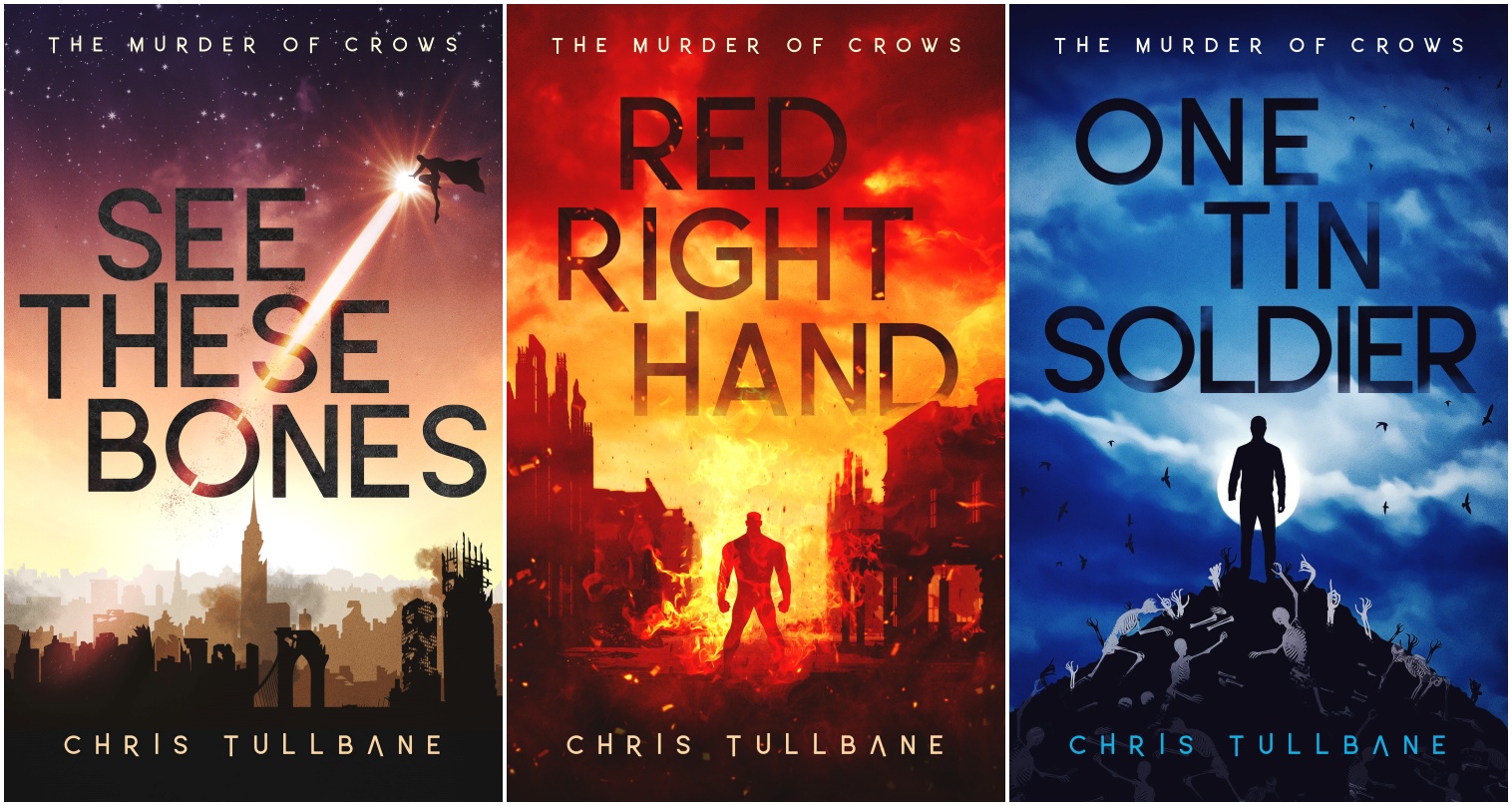
What are you working on right now?
I'm finishing up A Dead Man's Favor, the fifth book in my comedic urban fantasy, The Many Travails of John Smith. It is wildly different in both setting and tone from See These Bones and The Murder of Crows, following a well-meaning slacker who finds himself in over his head and gets by on the power of friendship and the few lessons he learned in his single semester of community college. Once that's done, I'll move back into the post-Break world of See These Bones where I have two new series waiting to be written. The starter book of one of those series, The Queen of Smiles, was released last November, and I plan to release the starter book of the second series this winter.
Where can our readers discover more of your work or interact with you?
I have an author site that I update monthly at https://christullbane.com. I'm also reasonably active on social media, predominantly Twitter (https://twitter.com/ctullbane) and Reddit (https://www.reddit.com/user/ctullbane), where I spend most of my time in the /r/Fantasy and /r/ProgressionFantasy subreddits. I always respond to emails, comments, tweets, and the like, so come say hi!
Popular authors
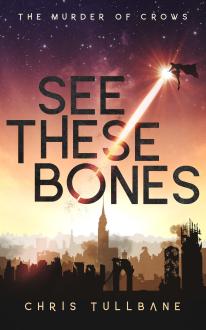
"When I was five, my father murdered my mother. Thirteen years later, I snuck out of superhero college to return the favor." Murderers. Villains. Madmen. There are many words to describe necromancers, but superhero isn't one of them. 18-year-old Damian's only talent is the power that's driving him insane. So how and why did he just become the Academy of Heroes' newest student?
